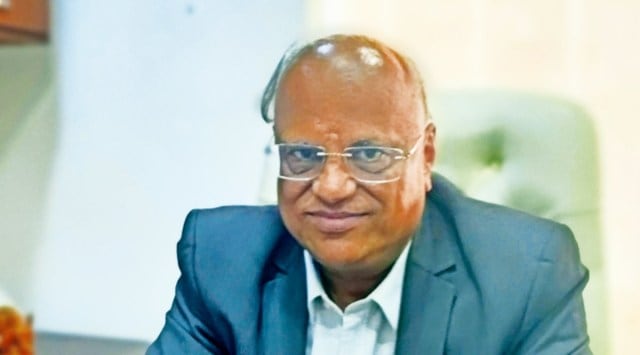Collegium system fair, transparent & ensures independence of judiciary, better than NJAC: Justice R D Dhanuka
“Open confrontation does not send a good signal to the public. Members of the public thus get a chance to criticise the entire system which shall be avoided,” he said.
 Justice Dhanuka retired as Bombay HC CJ on May 30
Justice Dhanuka retired as Bombay HC CJ on May 30 Justice Ramesh Deokinandan Dhanuka, who retired as Chief Justice of the Bombay High Court on May 30, said the present Collegium system for appointment of judges is better than the National Judicial Appointments Commission (NJAC) and continuation of the same will help in ensuring independence of judiciary.
Justice Dhanuka, who served as a HC judge for over 11 years and practiced as a lawyer for nearly 27 years, added that there should not be any confrontation between judiciary and the executive in public and the issues should be sorted behind closed door meetings.
“Open confrontation does not send a good signal to the public. Members of the public thus get a chance to criticise the entire system which shall be avoided,” he said.
Justice Dhanuka, while speaking to The Indian Express said, “My personal view is that the Collegium system is better than NJAC. If any improvement is required, views of the public and government can always be considered to make the system fool-proof. The senior judges, who are members of Collegium, know better about the advocates practicing before them and about their integrity, mannerisms, conduct etc and have first-hand information regarding the same.”
Justice Dhanuka, whose father was also a judge of Bombay HC, said that first generation lawyers are also appointed as judges and they are performing well. “Even if a lawyer belonging to a former judge’s family is recommended, it is not simple for him or her. He or she has to show own talent, hard work, integrity, competence, impeccable conduct in the court and gain the confidence of judges on collegium with these qualities,” he said.
Justice Dhanuka went on to say that there is no interference in the collegium system. “The collegium system, which involves appointments in consultation with local judges, is a more fair and transparent manner in which appointments can be made. We can always improve the system. Even if it has been going on for the past 100 years, and changes are required according to the need of the day, they can be adopted and the same is being done,” he said.
Justice Dhanuka also said that “efforts should be made to fill the vacant posts at Bombay HC to avoid any shortage of judges as the present judges are overburdened.”
He emphasised that there is a requirement of at least 50 judges at the principal seat in Mumbai, which currently has little over 30 judges. However, due to insufficient infrastructure, at the most 40 judges can be accommodated.
“Moreover, the competent lawyers will have to leave lucrative practice and take up judgeship… Only a few lawyers would accept the offer and not all are willing to make the sacrifice, resulting in not getting many candidates from the bar. We try to convince them but we cannot force them…It is a matter of honour if you are invited to accept judgeship. I also had large practice before taking up judgeship.
Justice Dhanuka said ‘cooperation from advocates,’ who play a major role as ‘first judges’ of the matters is important, as they can weed out frivolous petitions or persuade the clients to settle matters amicably and delays are avoided.
Justice Dhanuka further said that while the state government has allotted a plot for a new court complex, its construction should be done in an expeditious manner. “I feel that it will take at least eight years to make the complex operational and once buildings are constructed, the court can be shifted. In the new complex, we have to think futuristically and keep in mind the requirement of at least the next 30 years and have sufficient number of courts and infrastructure accordingly. Digitisation of records has to be done in expeditious manner and the same is being ensured,” he said.
Justice Dhanuka also said that cases related to senior citizens have to be given ‘priority’ and have to be heard at the earliest. “Also, timely disposal of matters concerning personal liberty of an individual further strengthens the faith of the general public in the judiciary,” he added.
He added that while deciding matters pertaining to high profile persons, including alleged illegal construction at Union Minister’s residence, Dussehra Melawa issue and case against caste certificate of MP, benches led by him decided the same “without any vendetta or grudge and only on merits of the case.”
“Every judge has to decide cases without any fear or favour,” Justice Dhanuka said.




































